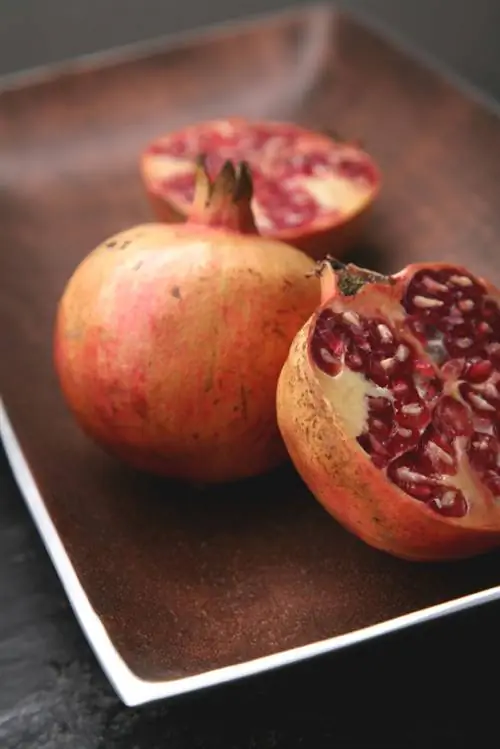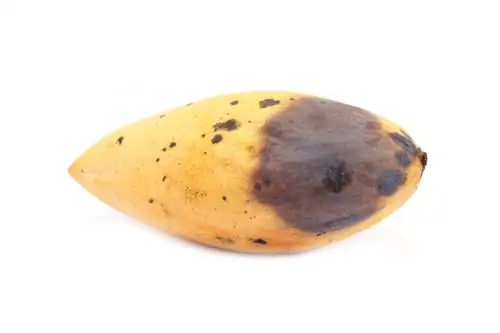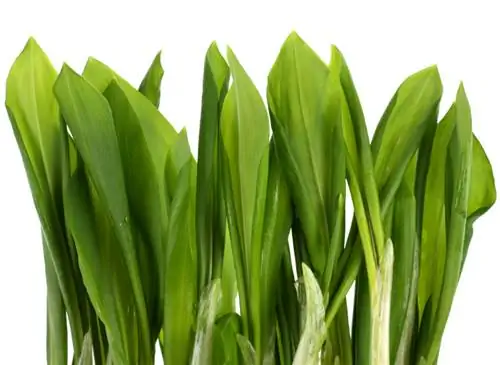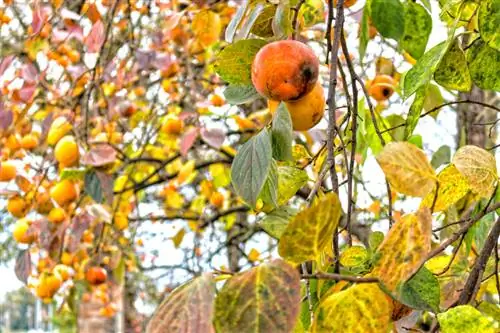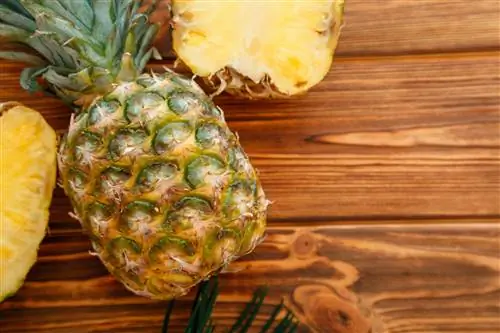- Author admin [email protected].
- Public 2023-12-16 16:46.
- Last modified 2025-06-01 06:02.
A ripe pomegranate is not a particularly spectacular appearance from the outside. Inside, however, it offers a colorful sight of countless small, angular seeds surrounded by a translucent, often ruby-red fruit coat.
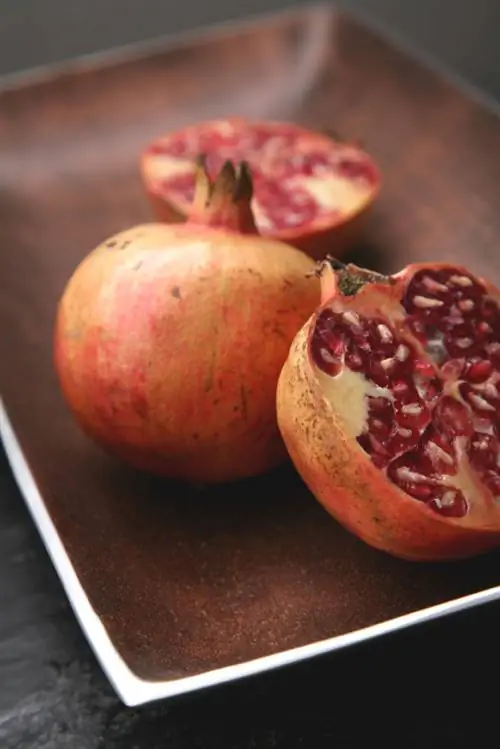
How do I know if a pomegranate is spoiled on the inside?
A pomegranate is brown inside and may be spoiled if mold is visible on the sepal and soft spots appear. Brown colored and softened seeds confirm this assumption. Affected areas can be generously removed; intact seeds are still edible.
How to recognize good fruit from the outside
The spherical, fist-sized fruits of the pomegranate have a firm, red-brown colored skin. Spots and bulges on the shell are normal and not a quality defect. When touched with your fingers, the intact pomegranate feels waxy, almost leathery, sometimes a little rough and hard. You can recognize a ripe pomegranate by the color and texture of the peel.
How to recognize spoiled fruit
You should first look at the sepal of the fruit, which usually looks dried out. If mold is visible in the remaining flowers, this is the first sign of a lack of freshness or poor storage. If you discover soft spots when you touch the fruit, these are another indication that the pomegranate is rotting inside.
When you open the fruit you usually notice that the seeds and the intermediate skins are also brown in color and softened, which confirms your suspicion. The intact pomegranate seeds have - depending on the variety - light yellow, pink or deep red colored, glassy, firm flesh.
Cut out generously or throw away
As with any other fruit, if in doubt, you can definitely recognize the rot from the smell and ultimately the taste. If only a small area of the fruit is affected, it could be cut out generously and removed. The intact seeds can be eaten without hesitation, especially if they are e.g. B. cooked in a sauce or subjected to heat treatment in another way.
Tips & Tricks
The pomegranate is quite low in calories with its nutrient content of around 40 - 60 kcal per 100 g. It contains iron, potassium and more polyphenols than red wine.

